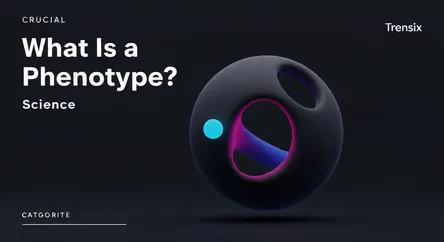Science
What Is a Phenotype?

Explore the concept of phenotype, the observable traits of an organism that result from the interaction of its genes and the environment.
What is it?
A phenotype is the set of an organism's observable characteristics, such as height, eye color, and blood type. It includes everything from physical form and developmental processes to biochemical properties and behavior. The term comes from the Greek word "phainein," meaning "to show." A phenotype is the result of two interacting factors: the organism's genetic code (its genotype) and environmental influences. While the genotype is inherited, the phenotype is the expression of those genes as influenced by factors like diet, lifestyle, and climate.
Why is it trending?
The study of phenotypes, or "phenomics," is a rapidly growing field, largely because genotyping has become more affordable and accessible. This has shifted the scientific focus toward understanding how genes actually express themselves in the real world. Advances in technology and machine learning are enabling researchers to analyze vast amounts of phenotypic data. This is critical for progress in personalized medicine, where understanding a patient's phenotype can help predict disease risk and determine the most effective drug treatments. It is also vital in agriculture for developing more resilient and productive crops.
How does it affect people?
Phenotypes define our individual characteristics, from our appearance to our susceptibility to certain diseases. Understanding the relationship between our genes and our observable traits is fundamental to modern medicine. It helps explain why some people have a higher risk for heart disease, how different individuals might react to the same medication, or how inherited traits are passed down. This knowledge emphasizes that it's not just our genes but also our lifestyle and environment that shape our health, paving the way for more personalized healthcare and effective preventive strategies.